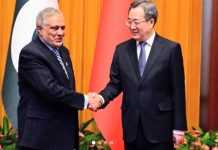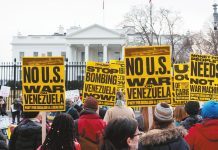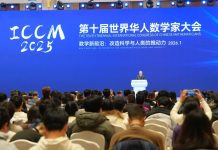By Ajmal Khan Yousafzai
ISLAMABAD: Pakistan’s resource-rich northwest Khyber Pakhtunkhwa (KP) province had been suffering the menace of terrorism for over a decade until the situation improved in recent years.
The poor security in the province had taken a toll on economic development of the region located at the threshold of a trade route to Afghanistan and Central Asian countries. The province, particularly its tribal areas, fell into acute poverty due to lack of business and employment opportunities.
The law and order situation got better in the province during the last few years. The country’s military recently reported that they have flushed out militants from the last few restive pockets in KP, but unemployment and low business opportunities remain a challenging task for the provincial government. Prime Minister Imran Khan said on Monday that the provincial government has been successful in lowering the graph of poverty in the province, but unemployment ratio is still high and many people have to leave their families behind to find employments in other parts of the country or overseas.
The prime minister, experts and the general public believe that the China-Pakistan Economic Corridor (CPEC) has the potential to change the future of the region by bringing in business and employment opportunities.
The development agreement of the Rashakai special economic zone (SEZ) under CPEC was signed on Monday, and developmental work on the SEZ in KP’s Nowshera district will start after the formal signing ceremony.
According to Pakistan’s Board of Investment, a department working under the prime minister to facilitate investors, the Rashakai SEZ sprawling about 1,000 acres of land will be developed under public-private partnership.
Shabir Ahmad Khan, director of Area Study Center (Russia, China and Central Asia) in the University of Peshawar in the provincial capital of KP, told Xinhua that the Rashakai SEZ will open a new door for the people of KP who suffered a long war against terrorism.
“With the formation of the SEZ in the province, many untapped potentials of the province will be tapped, and the resources and riches of the province will be explored,” he said, adding that the province is rich in gems and jewelry, minerals and marble, and with the formation of the SEZ, not only industrialization of these sectors will be facilitated, but transfer of technology from China is also expected through joint ventures between both countries in the respective fields.
CPEC gave hope to the people of Pakistan at a time when even local investors were relocating their businesses to other countries, and now with the restoration of peace in the country, CPEC is expected to promote industrialization in Pakistan in its second phase.
In an earlier address, Speaker of Pakistan’s National Assembly, or the lower house of parliament, Asad Qaiser recalled the time when Pakistan did not have any hope of economic development as it was marred by terrorism, but “we saw the light at the end of tunnel in the form of CPEC, all backward and war-torn areas in Khyber Pakhtunkhwa and Balochistan provinces also got hope of economic development, and now special economic zones are being developed there.”
Addressing Monday’s development agreement signing ceremony, Khan said with the initiation of the industrialization process in the Rashakai SEZ, people of the province will be able to find employment without having to leave their homes in the pursuit of livelihood.






